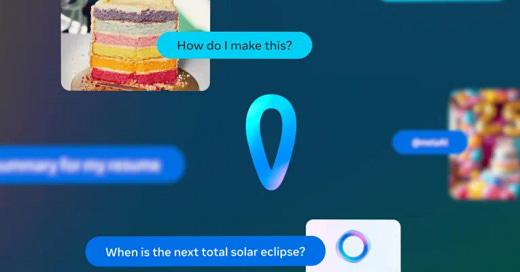Dissatisfied with Meta’s progress in generative artificial intelligence, Mark Zuckerberg has opened his checkbook. Last week, the parent company of Facebook and Instagram confirmed it had taken a stake in Scale AI. According to US media, it will spend $14.3 billion to acquire 49% of the start-up specializing in data labeling.
More importantly, the deal is aimed at luring away its founder and CEO, Alexandr Wang, who will head a new division focused on developing a “superintelligence.” Several engineers will follow him.
All in all, the agreement resembles a disguised acquisition aimed at securing highly sought-after talent. By structuring the deal this way, Meta is emulating Microsoft, Google, and Amazon, hoping to avoid scrutiny from antitrust authorities.
Founded in 2016, Scale AI doesn’t build AI models. The start-up operates upstream of the training phase, annotating and cleaning data sets for its clients—a crucial step for achieving better results. To do this, it relies on an army of low-paid task workers. Initially, Scale AI focused mainly on the autonomous vehicle market, labeling lidar images for clients like General Motors and Toyota.
Zuckerberg takes the lead
The boom in generative AI has opened new avenues. OpenAI, Google, Microsoft, and Elon Musk’s xAI now use its services. Last year, the company posted $870 million in revenue. Before Meta came into the picture, it was targeting $2 billion in revenue for this year.
Although Scale AI is thriving, this likely isn’t what interests Meta. In fact, some major clients are expected to stop working with the start-up, Reuters reports, unwilling to share their data sets with a company closely linked to a competitor. Meta’s main goal was to recruit Alexandr Wang and his team to join its new lab.
The company hopes to accelerate in AI after the lukewarm reception of the first Llama 4 models released in April. The most powerful version was postponed due to disappointing performance. According to Bloomberg, Mark Zuckerberg has since taken matters into his own hands, personally overseeing the hiring of about 50 engineers and researchers.
Going further than Microsoft
Under normal circumstances, Meta would have simply acquired Scale AI. But such a move now appears difficult — if not impossible — as antitrust regulators have stepped up scrutiny of tech giants. At best, a full acquisition would have taken many months or even years to be approved — far too slow in this rapidly moving field.
Looking for a workaround, the Menlo Park company followed the path paved last year by Microsoft, Amazon, and Google, who used disguised acquisitions to bring on engineering teams. Given the size of the deal, Meta had to go even further: instead of offering pseudo-licensing deals on Scale AI’s technology, it opted for an equity stake.
While Meta hasn’t publicly commented, it’s very likely that a large portion — if not nearly all — of the $14.3 billion will be used to buy out Scale AI’s investors at a hefty profit, mimicking a full acquisition. Like similar deals, the start-up will not shut down. However, its future growth prospects are now much dimmer.
By limiting itself to a 49% stake, Meta avoids needing regulatory approval. But that doesn’t mean authorities can’t step in later. In fact, US agencies are looking into deals made by Microsoft, Amazon, and Google. Already entangled in an antitrust lawsuit, Meta is reportedly trying to curry favor with Donald Trump as part of its broader strategy.
Microsoft, Google, and Amazon
In March 2024, Microsoft absorbed Inflection, known for Pi, a chatbot rivaling ChatGPT. This move allowed Microsoft to acquire much of Inflection’s engineering team, including CEO Mustafa Suleyman, a co-founder of DeepMind (Google’s AI lab acquired in 2014).
In late June, Amazon followed suit by hiring about two-thirds of Adept’s staff. Adept had been developing AI “teammates” that made it easy to perform actions within software. In early August, Google did the same with Character, a chatbot platform mimicking personalities. This operation allowed Google to rehire Noam Shazeer, a former employee involved in foundational research for generative AI.
Like Meta, these deals are structured to avoid antitrust reviews and potential vetoes. In exchange, the three companies adopted financial arrangements involving license agreements. Officially, these deals allow them to distribute the start-ups’ models. But the sums involved seem out of touch with market realities: $2.7 billion for Character, $650 million for Inflection, and $440 million for Adept.
In reality, these license agreements mostly serve to pay off the investors, who receive nearly the entire amounts. In other words, these deals replace traditional “acqui-hires” (acquisitions made purely to hire teams). While regulators are investigating, no formal proceedings have yet been initiated.




